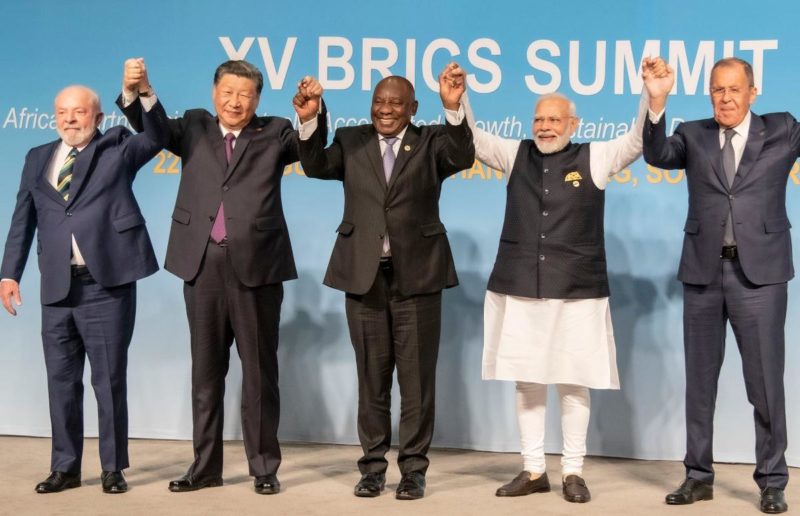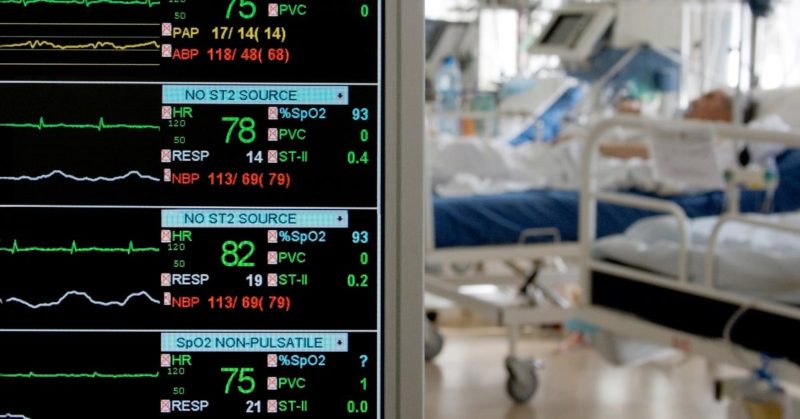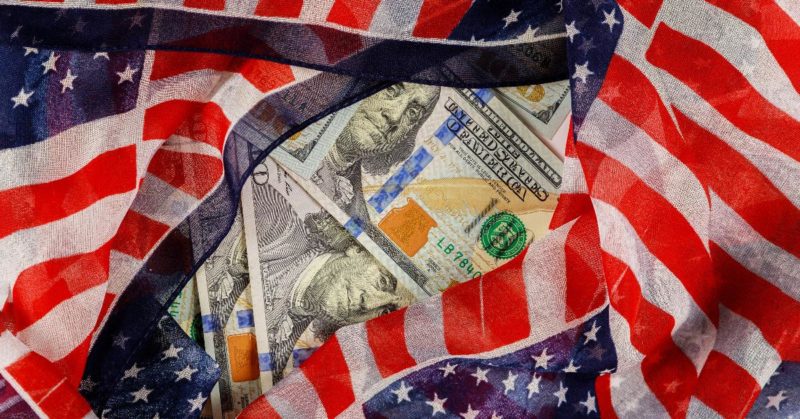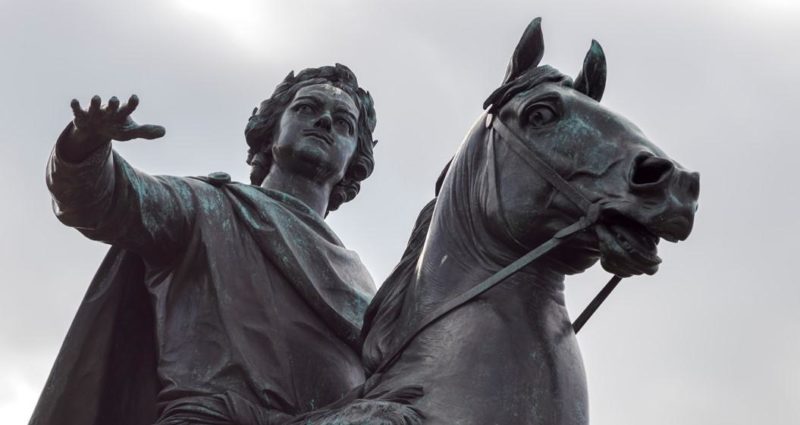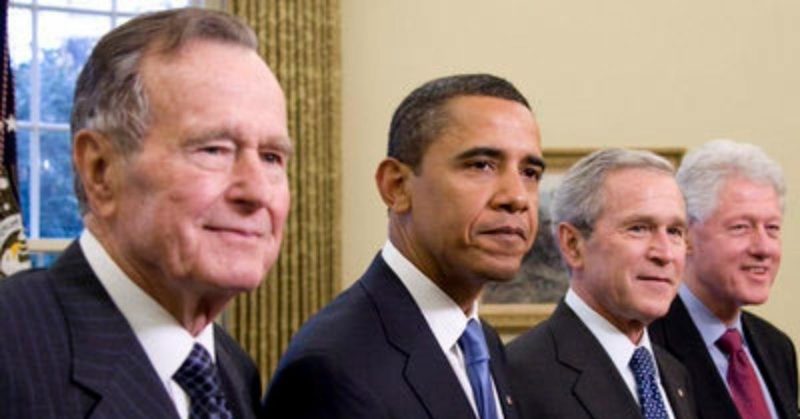Category Archive: 6b.) Mises.org
Will the BRICS Dethrone the U.S. Dollar?
The summit of the so-called BRICS (Brazil, Russia, India, China, and South Africa) has closed with an invitation to join the group extended to the Emirates, Egypt, Iran, Saudi Arabia, Argentina, and Ethiopia.
The summit has generated a lot of headlines about the impact of this widespread group of nations, including speculation about the end of the U.S. dollar as a global reserve currency if this group is perceived as a threat to the United States...
Read More »
Read More »
The Beltway Libertarians Are Too Smart for Oliver Anthony
Ryan McMaken joins Bob to discuss the surprisingly negative reaction (from a Reason writer and Tyler Cowen) to Oliver Anthony's hit song, "Rich Men North of Richmond." Ryan and Bob defend the lyrics, arguing that Anthony doesn't say anything objectionable from either a libertarian or economic perspective.
Listen to Oliver Anthony's "Rich Men North of Richmond": Mises.org/HAP412a
Christian Britschgi's article in Reason on Oliver...
Read More »
Read More »
Forced Isolation of Patients in the ICU Is Barbaric and Counterproductive
Healthcare providers have known for years that contact between patients and family members are essential for good outcomes during intensive care unit (ICU) stays. The ABCDEF bundle is generally accepted as best practice in ICU care. The F stands for “family engagement and empowerment.”
Yet, most (if not all) ICUs threw this practice out the window during covid. Family engagement and empowerment is not merely a humanitarian gesture but is necessary...
Read More »
Read More »
Family Flourishing and State Denigration
As family life descends into crisis in the USA, many conservatives call for state intervention to "fix" things. It's state intervention that created the problems in the first place.
Original Article: "Family Flourishing and State Denigration"
Read More »
Read More »
A Procapitalist Philosopher
Most contemporary political philosophers view free market capitalism with suspicion, if not outright loathing, but one exception is Gerald Gaus, who taught for many years at the University of Arizona. Gaus was by no means a Rothbardian but rather worked within the framework of “public reason” set forward by John Rawls, though Gaus greatly modified it. In this week’s column, I’d like to discuss some of the arguments about property that Gaus makes in...
Read More »
Read More »
Let Staten Island Secede!
If Staten Island is allowed to secede, our national technocrats fear that might open up countless similar demands for self-determination across the nation. For the elites, the current status quo works quite well and they want to keep it that way.
Original Article: "Let Staten Island Secede!"
Read More »
Read More »
American Prosperity Is Greater than Most of Us Realize
Traveling was once a luxury for the rich, but today even working-class people enjoy vacations. In America, people have gotten so wealthy that planning summer vacations is a priority for many families. Living standards have improved so tremendously that elite amenities are now commonplace. Nearly 90 percent of American homes rely on air-conditioning, and 92 percent of households have access to at least one vehicle.
Relative to the globe, most...
Read More »
Read More »
The Imperial Russian Regime was Neither “Great” nor “Enlightened”
Pope Francis made headlines last week when he described the Russian Empire as "enlightened" and invoked the names of two expansionist Russian czars as examples of Russia's "great culture." In impromptu remarks, Francis said to a group of Russian Catholics, “You are the heirs of the great Russia: the great Russia of saints, of kings, the great Russia of Peter the Great, of Catherine II, of that great, enlightened Russian empire,...
Read More »
Read More »
Golf Merger Is Opposed by Congress. This Is Misguided
Members of Congress claim to be "concerned" over the proposed merger between LIV Golf and the PGA Tour. They should be supporting it or, even better, backing off completely.
Original Article: "Golf Merger Is Opposed by Congress. This Is Misguided"
Read More »
Read More »
Power Vacuum: How the State Wants to Suck Electricity from the SUV You Are Required to Buy
A literal power vacuum—that’s what California Senate Bill 233 proposes.
And what is to be sucked? Your electric car.
The bill—which has passed the Senate and is now winding its way through the Assembly—states that all new electric vehicles to be sold in California after 2030 be “bidirectional.”
Because the state has decided to essentially go all electric without having the ability to actually provide enough electricity, the climate warriors have...
Read More »
Read More »
Local Secession Movements: From Staten Island to the South
On this episode of Radio Rothbard, Ryan McMaken and Tho Bishop look at county and city-level secession movements and what it means for political self-determination. In a recent article, Ryan McMaken highlighted renewed calls for Staten Island to secede from New York City, but other recent examples include attempts by taxpayers in areas of Georgia and Alabama to break away from the control of mismanagement of local governments. Tho and Ryan look at...
Read More »
Read More »
Eurodollars as a Fractional Reserve Market
We should not just be concerned about problems in the American banking system, but also about the proliferation of Eurodollars.
Original Article: "Eurodollars as a Fractional Reserve Market"
Read More »
Read More »
Consumer Credit Is Expanding Even While the Fed Pushes up Interest Rates
To me, a wise and humane policy is occasionally to let inflation rise even when inflation is running above target.
—Janet Yellen
We have sighted the enemy and he is us.
—Pogo
On July 26, 2023, the Federal Reserve raised interest rates by a quarter of a percentage point. By the time you read this, your credit card interest rate will probably have increased for your September statement. When headlines talk about the Fed raising interest rates, the...
Read More »
Read More »
Slobodian Contra Rothbard
Crack-Up Capitalism will be of interest to many readers of The Austrian because of what it says about Murray Rothbard; and for the most part, I shall limit my review to discussing this. The main point of the book is easy to grasp. In recent decades, the notion of a centralized state has come under fire in various ways, including attempts to secede, to create “enterprise zones” within states, and to establish societies without a state at all. Quinn...
Read More »
Read More »
Thatcher’s New Style of Government
The possible bankruptcy of Thames Water Company in Great Britain brings to mind the heady days 40 years ago when Margaret Thatcher's government was privatizing state-owned enterprises, including TW. Not all privatization stories have happy endings.
Original Article: "Thatcher's New Style of Government"
Read More »
Read More »
Statism Stands against Free Trade and Free Association
People cavil much about Ricardo’s law of association, better known under the name law of comparative cost. The reason is obvious. This law is an offense to all those eager to justify protection and national economic isolation from any point of view other than the selfish interests of some producers or the issues of war-preparedness.
—Ludwig von Mises, Human Action
Alexander Macris of the Substack blog Contemplations on the Tree of Woe has called...
Read More »
Read More »
The Bombing of Hiroshima: The Crime and the Cover-Up
The real effects of the atomic bomb on Hiroshima were hidden from Americans until the New Yorker published an exposé in 1946. Americans finally were confronted with the truth—even if they didn't want to believe it.
Original Article: "The Bombing of Hiroshima: The Crime and the Cover-Up"
Read More »
Read More »
Let’s Examine Some REAL Crimes Committed by Presidents
Former president Donald Trump is facing ninety-one criminal charges as he seeks to win back the White House in 2024. The indictments are the latest battle in a roughly six-year crusade against Trump that first sought to remove him from power through the Twenty-Fifth Amendment, then with espionage charges and impeachments, and that now aims to block him from becoming president again. The mantra we hear from those in politics and media who support...
Read More »
Read More »
The Problem with Public Transit
Much of government-owned transportation destroys rather than adds to wealth. The lack of a sound system of economic calculation is to blame.
Original Article: "The Problem with Public Transit"
Read More »
Read More »
Deneen’s Common Good Statism
It’s likely that many readers of The Austrian support the free market and also support “traditional” social values, but in Patrick Deneen’s opinion, this is an unstable amalgam. Deneen, a political theorist who teaches at Notre Dame, thinks that the market undermines tradition and that those of us who resist the “woke” Left and want to preserve tradition ought to abandon what he sees as an uncritical devotion to the market.
Deneen says that...
Read More »
Read More »









